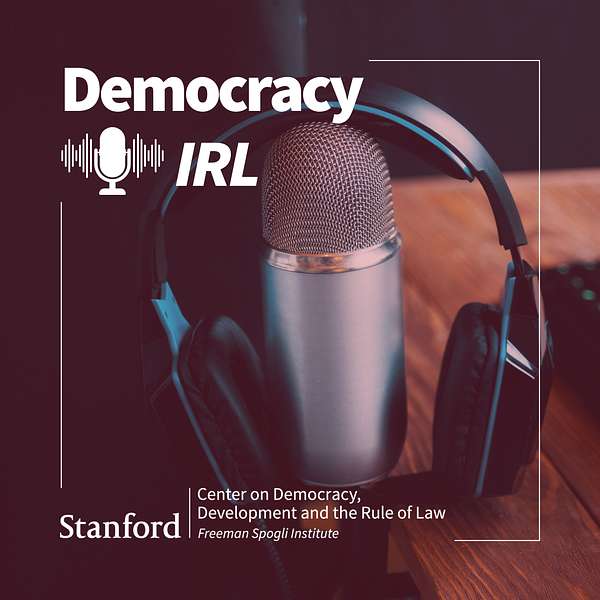
Democracy IRL
Democracy IRL
Have We Reached Peak China? Interview with Andrew G. Walder
Political sociologist Andrew G. Walder, the Denise O'Leary and Kent Thiry Professor in the School of Humanities and Sciences and Senior Fellow in the Freeman Spogli Institute for International Studies, is a specialist on the sources of conflict, stability, and change in communist regimes and their successor states. Walder joins Francis Fukuyama to discuss China's economic slowdown, why it suffers from high inequality, and whether the country has peaked and is now facing long-term stagnation.
Andrew G. Walder is the Denise O'Leary and Kent Thiry Professor of Sociology at Stanford University and Senior Fellow at Freeman Spogli Institute for International Studies. His research has focused on the social impact of revolutions, particularly the sources of stability and change in communist regimes and their successor states, with a special emphasis on China. His book on Communist Neo-Traditionalism: Work and Authority in Chinese Industry (1986) examined the way that Communist Party organization and reward structures created patron-client forms of authority in post-revolution urban China. Professor Walder's subsequent work examined the evolution of property rights and economics organization under the impact of market reform and the consequences for social stratification, career and intergenerational mobility, and political conflict. He is the author of Fractured Rebellion: The Beijing Red Guard Movement (2009), which analyzed the origins of political factionalism during the Cultural Revolution and explored how this phenomenon altered the direction of the student movement and its social impact. At Stanford, he has served as Chair of the Department of Sociology; Director of the Walter H. Shorenstein Asia-Pacific Research Center; and Director of the Division of International, Comparative and Area Studies. Professor Walder is a past recipient of a Guggenheim Fellowship and a former Fellow of the Center for Advanced Study in the Behavioral Sciences. His books have received awards from the American Sociological Association and the Association for Asian Studies.
Democracy IRL is produced by the Center on Democracy, Development and the Rule of Law (CDDRL), part of the Freeman Spogli Institute for International Studies (FSI) at Stanford University.
To learn more, visit our website or follow us on social media.
